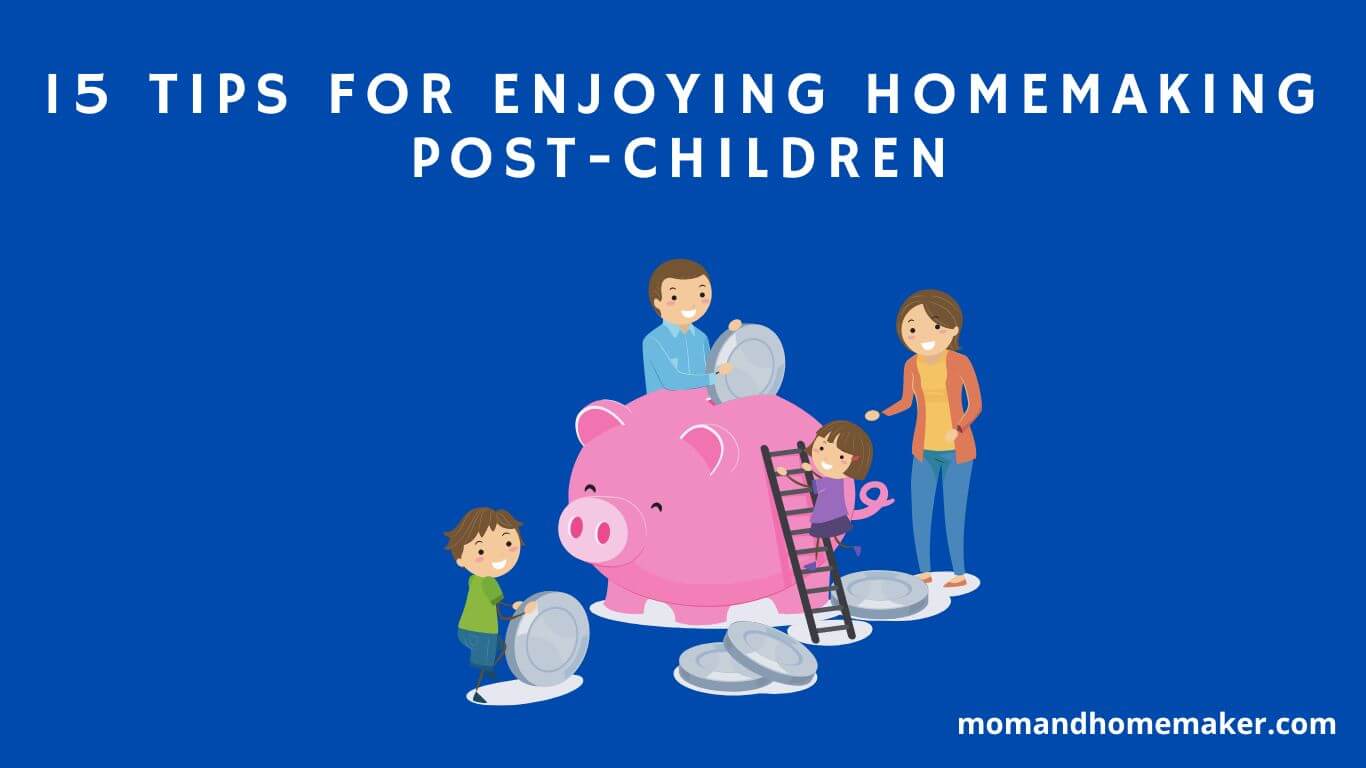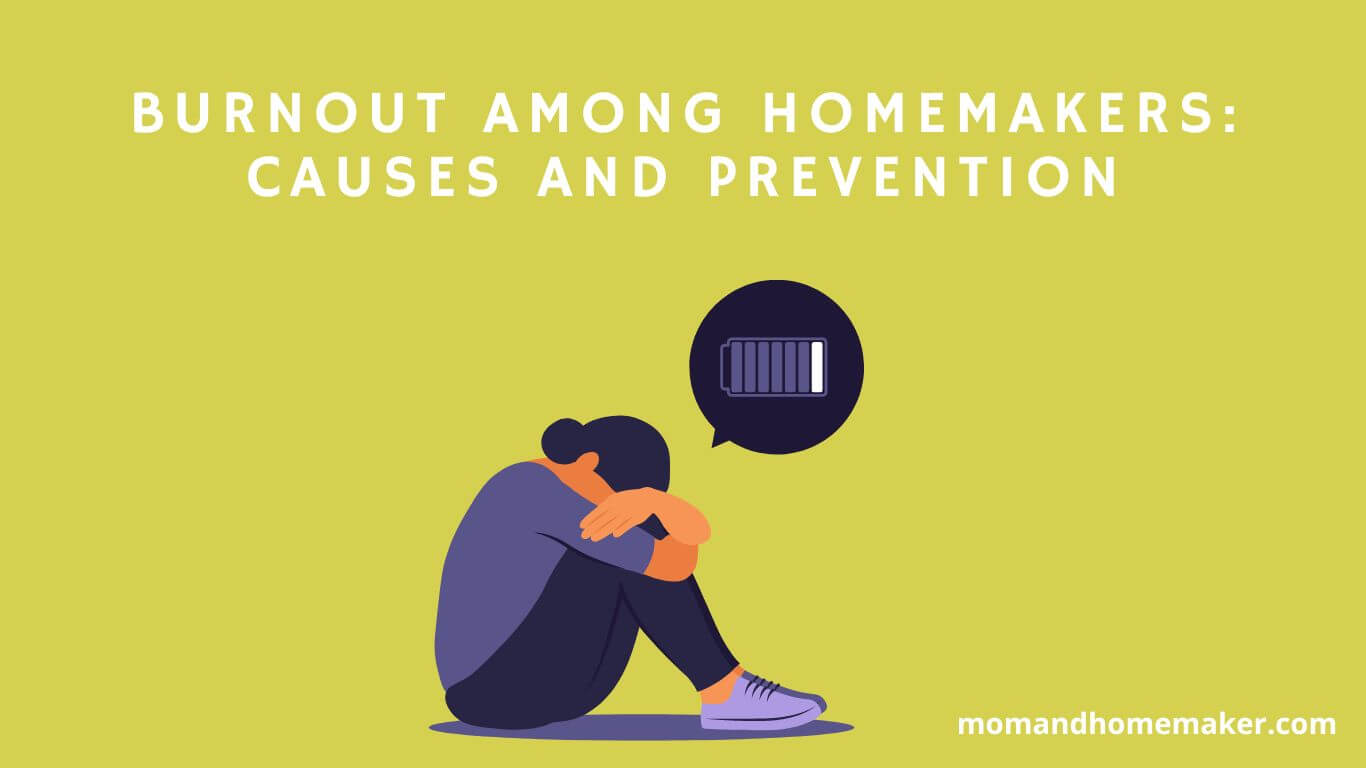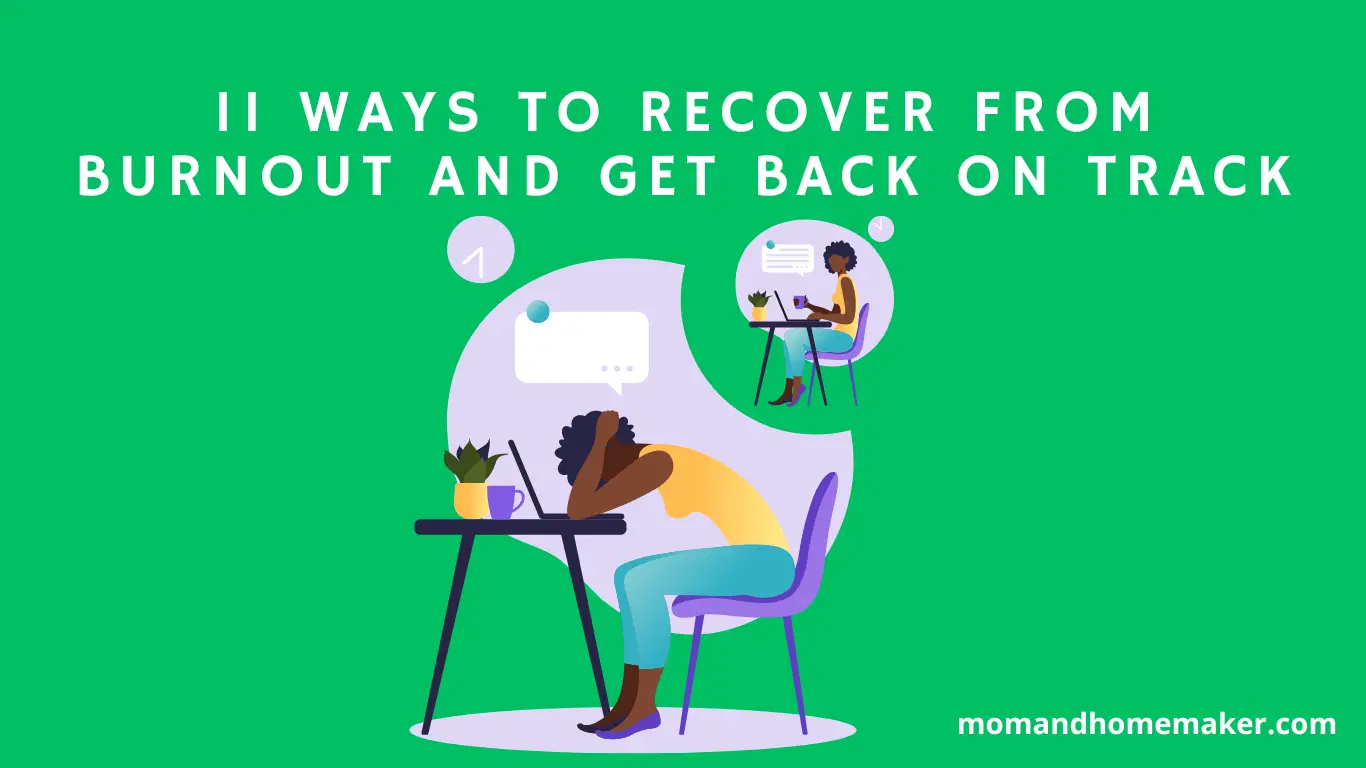They say that raising a child takes a village, and as a homeschooling family, you understand the truth in that statement. Even though you educate your children at home, there may be times when you need childcare support.
Whether you’re considering hiring a nanny, enrolling in a homeschool co-op with childcare, or seeking assistance from family and friends, this discussion aims to help you find the best childcare solution for your homeschooling family.
Benefits of Childcare for Homeschooling Families
Childcare can be a great help for homeschooling families. As a homeschooling parent, you may need some support in taking care of your children while you focus on their education. Different types of childcare arrangements can offer several advantages for your family.
One of the main benefits of structured childcare is the opportunity for your children to socialize with their peers. When they interact with other children in a supervised setting, they can develop important social skills and build lasting friendships. This can improve their overall social and emotional well-being and help them feel like they belong to a community.
Structured childcare also provides a routine for your children. This helps them develop discipline and responsibility as they follow a daily schedule and engage in activities that promote learning and growth. Having a structured routine also gives you, as a homeschooling parent, some much-needed time to focus on planning lessons and other educational tasks.
Moreover, structured childcare can be a valuable support system for you as a homeschooling parent. It gives you some time for yourself, reducing stress and preventing burnout. Knowing that your children are in a safe and enriching environment can give you peace of mind and allow you to recharge. This benefits both you and your children.
Types of Childcare Options for Homeschooling Families
When it comes to childcare options for homeschooling families, there are several choices available to meet your needs. As a homeschooling parent, you have the freedom to choose the type of childcare arrangement that works best for your family’s schedule and requirements.
Here are the different options to consider:
- In-home Childcare: You can hire a nanny or babysitter to come to your home and take care of your children while you focus on homeschooling. This option provides the convenience of having someone in your own space, ensuring your children are well-cared for.
- Co-op Childcare: Joining a homeschooling co-op can be a great option. In a co-op, parents take turns providing childcare for each other’s children. This arrangement not only offers the opportunity for your child to socialize with other homeschoolers but also gives you some much-needed time to yourself.
- Enrichment Programs: Enrolling your child in enrichment programs, such as art classes, music lessons, or sports activities, can be beneficial. These programs provide structured learning experiences for your child while allowing you some time to work on homeschooling tasks.
- Virtual Childcare: Utilizing online platforms that offer virtual babysitting services is another option. With virtual childcare, a caregiver interacts with your child remotely, giving you the flexibility to focus on homeschooling while your child is engaged with a caregiver.
Each of these options has its unique benefits and flexibility in homeschooling childcare arrangements. Consider what works best for your family’s lifestyle and needs.
Remember, there’s no one-size-fits-all solution, so feel free to explore multiple options or even combine them to create a customized childcare arrangement that suits your homeschooling journey.
Hiring a Nanny for Homeschooling Families
Consider hiring a nanny to provide childcare for your homeschooling family. A nanny can offer individual attention and support to your children, ensuring that their educational needs are met while you focus on other responsibilities. Here are four reasons why hiring a nanny can be beneficial for your homeschooling journey:
- Personalized Instruction: A nanny can give one-on-one instruction tailored to your child’s unique learning style and pace. They can provide individualized attention and adapt their teaching methods to meet your child’s specific needs, ensuring they receive a high-quality education.
- Flexible Schedule: Hiring a nanny allows you to have more flexibility in your homeschooling schedule. They can assist with childcare during specific hours, freeing up time for you to focus on lesson planning, household chores, or even your own personal and professional commitments.
- Additional Support: A nanny can help with various homeschooling tasks, such as preparing educational materials, organizing field trips, or supervising extracurricular activities. They can also provide guidance and support in areas where you may need assistance, like hiring a tutor for specialized subjects or connecting with homeschooling co-ops for social interactions.
- Consistency and Stability: Having a consistent caregiver can provide a sense of stability and routine for your children. A nanny can establish a structured learning environment and maintain a consistent schedule, promoting a sense of belonging and security within your homeschooling routine.
Enrolling in a Homeschool Co-Op With Childcare
Enrolling in a homeschool co-op with childcare can be a great way to enhance your homeschooling journey. By joining a homeschool co-op, you and your children can connect with other homeschooling families in your community, fostering a sense of belonging and providing opportunities for collaboration and shared experiences.
To enroll in a homeschool co-op with childcare, simply reach out to the co-op coordinator or leader to express your interest and inquire about available spots. They’ll provide you with information about the co-op’s philosophy, schedule, and fees.
Some co-ops may require an application or interview to ensure a good fit for your family. Once you have completed the necessary paperwork, you can officially join the co-op and start enjoying its benefits.
One of the key advantages of enrolling in a homeschool co-op with childcare is that it offers a structured learning environment for your children while allowing you to connect with other homeschooling parents. The co-op’s childcare services provide you with the flexibility to attend classes, workshops, or support groups without having to worry about finding alternative care for your children.
Additionally, co-ops often organize group activities, field trips, and social events, providing opportunities for your children to make friends and develop social skills in a supportive and inclusive setting.
Utilizing Family or Friends for Childcare Support
One option for childcare support while homeschooling is to ask family or friends for help. This can be a great way to keep your child in a familiar and comfortable environment while also ensuring they receive the care and attention they need.
Here are four ways you can make the most of your family or friends’ assistance:
- Clearly communicate your expectations: It’s important to have open and honest conversations with your family or friends about what you need from them in terms of childcare. Talk about the schedule, responsibilities, and any specific requirements you may have. This will help ensure everyone is on the same page and prevent any misunderstandings.
- Build a support network: Reach out to other homeschooling families in your community who are also relying on family or friends for childcare support. By connecting with others going through a similar experience, you can share resources, tips, and advice. This sense of community can provide emotional support and a sense of belonging.
- Take advantage of community resources: Look for local organizations or groups that offer support for homeschooling families. These resources might help you find reliable childcare options or provide access to enrichment activities and educational materials. Utilizing these community resources can ease some of the pressure and provide additional support for your homeschooling journey.
- Show your appreciation: It’s important to express gratitude to the family or friends who are helping you with childcare. Take the time to thank them sincerely, whether it’s through a heartfelt note, a small gift, or simply expressing your gratitude in person. This won’t only strengthen your relationship with them but also encourage their continued support.
Exploring After-School Programs for Homeschooling Families
When homeschooling, it’s important to consider incorporating after-school programs to provide additional childcare options for your child. These programs offer numerous benefits, including socialization opportunities, skill development, and personal growth.
By participating in after-school activities, your child can engage in structured environments and interact with peers who share similar interests.
Finding reliable caregivers for after-school programs is crucial for your child’s safety and well-being. It’s essential to research thoroughly and ask for recommendations from other homeschooling families or local homeschooling networks. Look for individuals who are experienced, responsible, and knowledgeable in their field.
To help you get started, here are some popular after-school programs that homeschooling families have found beneficial:
- Sports Club: This program offers a range of sports activities such as soccer, basketball, and swimming. It caters to children aged 5-12 years and is available on weekdays.
- Art Studio: The Art Studio provides art classes and workshops for children to explore their creativity. It’s suitable for children aged 6-14 years and offers sessions on both weekdays and weekends.
- Science Lab: Engaging children in hands-on experiments and scientific exploration, the Science Lab is ideal for kids aged 8-16 years. It offers weekday afternoon sessions.
- Music Academy: The Music Academy offers music lessons and ensemble opportunities for various instruments. It caters to children aged 7-18 years and provides sessions on both weekdays and weekends.
These after-school programs can enhance your child’s homeschooling experience by providing opportunities for growth and development in different areas. Remember to choose programs that align with your child’s interests and goals to ensure a fulfilling and enriching experience.
Daycare Options for Homeschooling Families
Consider daycare options to provide additional support and flexibility for your homeschooling family. While homeschooling allows you to have more control over your child’s education, it can also be challenging to balance teaching responsibilities with other commitments. Daycare can offer a solution by providing a structured environment where your child can learn and socialize while you attend to other tasks.
Here are four factors to consider when weighing the pros and cons of homeschooling with daycare:
One important factor to consider is social interaction. Daycare allows your child to interact with peers, helping them develop social skills and fostering teamwork and cooperation. This can complement the socialization opportunities that homeschooling may lack.
Another factor to consider is curriculum support. Some daycares offer educational programs that align with homeschooling curricula, providing additional resources and reinforcement for your child’s learning. This can be especially helpful if you find it challenging to cover all subjects on your own.
Flexibility is also a key consideration. Daycare centers often offer flexible scheduling options, allowing you to choose the days or hours when your child attends. This can be particularly beneficial if you have other commitments or need dedicated time for lesson planning or work.
Cost and personalization are also important factors. While daycare can be expensive, it may be more cost-effective than hiring a nanny. Additionally, daycare centers often have a structured curriculum and trained staff, providing a level of expertise and professionalism that a nanny may not have.
In weighing these factors, consider your family’s specific needs and goals. Reflect on the advantages and disadvantages of homeschooling with daycare, and choose an option that best fits your circumstances. Remember that every family is unique, and there’s no one-size-fits-all solution.
Finding Childcare for Special Needs Homeschooling Children
If you have a child with special needs and you’re homeschooling, you might be wondering how to find appropriate childcare that can support their unique learning needs.
Finding caregivers who specialize in working with special needs homeschooling children can be challenging, but with some effort and research, you can find the right person to provide the care and support your child requires.
Start by reaching out to local support groups or organizations that focus on special needs children. These groups can connect you with other parents who’ve been in a similar situation and may be able to recommend specialized caregivers they’ve used in the past.
Additionally, consider contacting local schools or therapy centers that specialize in working with special needs children. They may have recommendations or even offer childcare services themselves.
When searching for specialized caregivers, it’s important to consider your child’s specific needs and find someone who has experience and training in that area. Look for caregivers who’ve worked with children with autism, ADHD, or other developmental disabilities. It’s also helpful to find caregivers who’ve certifications or qualifications in special education or related fields.
Managing childcare expenses can be a concern for many homeschooling families, especially those with special needs children who may require additional support.
Look into financial assistance programs that may be available to you, such as government-funded respite care or childcare subsidies. Consider reaching out to local organizations or charities that may offer grants or scholarships specifically for special needs homeschooling families.
Childcare Considerations for Single Homeschooling Parents
Being a single homeschooling parent comes with its own set of challenges, especially when it comes to childcare. Balancing the roles of educator and caregiver can be tough, but there are ways to make it easier. Here are some important factors to consider:
- Seek support from your community: Reach out to other single homeschooling parents in your area and create a support network. This will give you the chance to share resources, ideas, and even childcare responsibilities. Connecting with like-minded individuals will provide a sense of belonging and support throughout your homeschooling journey.
- Look for homeschooling assistance programs: There are organizations and educational institutions that offer assistance programs specifically designed for single parents who homeschool. These programs may provide financial aid, educational resources, and even access to childcare services. Research these programs to see if you qualify for any assistance that can help ease the burden of childcare.
- Explore co-op homeschooling options: Consider joining a homeschooling co-op where parents take turns teaching and supervising children in a group setting. This arrangement allows you to share the responsibility of childcare with other parents while still providing an enriching educational experience for your child. Co-ops also provide opportunities for socialization and collaboration with other homeschooling families.
- Utilize online resources and virtual support: Take advantage of online homeschooling communities and virtual support groups. These platforms offer a wealth of information, advice, and resources for single parents who homeschool. Engaging with these communities can provide you with emotional support, practical tips, and guidance on managing childcare while homeschooling.
Balancing Childcare and Homeschooling Responsibilities
Finding a balance between taking care of your child and homeschooling can be challenging, but with careful planning, it’s possible to create a routine that works for both of you.
As a homeschooling parent, hiring a nanny can be beneficial in managing childcare while focusing on your child’s education. There are several advantages to having a nanny for homeschooling families.
One benefit of hiring a nanny is the personalized attention and care they can provide for your child. Unlike a daycare or after-school program, a nanny can tailor their approach to meet your child’s specific needs and learning style. This individualized attention can enhance your child’s educational experience and ensure they receive the support they need to succeed academically.
Flexibility is another advantage of having a nanny. As a homeschooling parent, you have the freedom to create your schedule and curriculum.
With a nanny, you can have more time to focus on planning lessons and teaching, while they take care of other aspects of childcare like meal preparation and supervision. This division of responsibilities can help reduce stress and maintain a healthy work-life balance.
Another option to consider is after-school programs designed for homeschooling families. These programs provide a supportive community of like-minded parents and children, offering opportunities for socialization and extracurricular activities. Your child can engage in group learning experiences, go on field trips, and make friends with other homeschoolers, all while receiving the necessary supervision and guidance.
Childcare Solutions for Homeschooling Parents With Multiple Children
When homeschooling multiple children, finding childcare solutions that meet their different educational needs can be a challenge. However, with careful planning and consideration, you can find affordable options that provide the necessary support for your children’s learning journey.
Here are four childcare solutions to consider:
- Hiring a Tutor: One benefit of hiring a tutor is that they can give personalized attention to each child’s specific learning needs. A tutor can adapt their teaching style and curriculum to fit each child’s strengths and weaknesses, ensuring they receive the support and guidance they need.
- Cooperative Learning Groups: Creating a cooperative learning group with other homeschooling families can be a cost-effective solution. Each parent takes turns teaching the group, allowing children to learn from different perspectives and benefit from social interaction with their peers.
- Online Classes: Many online platforms offer a variety of classes designed for homeschooling families. These classes provide a structured curriculum and expert instruction, allowing children to learn at their own pace while giving parents more flexibility in their schedules.
- Family Support: If you have family members who are willing and able to help, they can provide valuable assistance in caring for your children while you focus on homeschooling. This can be a great opportunity for children to bond with their extended family and receive additional support in their educational journey.
Finding affordable childcare options for homeschooling multiple children may require some creativity and resourcefulness, but with careful planning and consideration, you can create a supportive environment that meets the diverse needs of your children. Remember, the key is to find solutions that work for your family and provide the necessary support for your children’s educational growth.
Incorporating Childcare Into a Homeschooling Schedule
To create a well-balanced homeschooling schedule, it’s important to incorporate childcare options that will allow you to focus on teaching while also meeting your children’s needs. Managing childcare responsibilities can be challenging, but with careful planning and scheduling, you can create a routine that benefits both you and your children.
One effective way to manage childcare scheduling is by creating a daily or weekly timetable. This will allow you to allocate specific times for teaching and designated times for childcare. By setting aside dedicated hours for each activity, you can ensure that your children receive the attention and care they need while still being able to dedicate uninterrupted time to homeschooling.
To further enhance your childcare scheduling, consider implementing a rotating system. This involves coordinating with other homeschooling families in your community to take turns providing childcare for each other’s children.
Not only does this help alleviate the burden of managing childcare responsibilities alone, but it also provides your children with opportunities for socialization and learning from their peers.
To illustrate the benefits of incorporating childcare into your homeschooling schedule, here is a sample weekly timetable for managing childcare responsibilities:
| Time | Monday | Tuesday | Wednesday | Thursday | Friday |
|---|---|---|---|---|---|
| 9:00 AM – 12PM | Teaching | Teaching | Childcare | Teaching | Teaching |
| 12PM – 1PM | Lunch | Lunch | Lunch | Lunch | Lunch |
| 1PM – 3PM | Childcare | Childcare | Teaching | Childcare | Childcare |
| 3PM – 4PM | Break | Break | Break | Break | Break |
| 4PM – 6PM | Childcare | Childcare | Childcare | Childcare | Childcare |
Financial Assistance for Childcare in Homeschooling Families
Financial assistance programs can help alleviate the financial burden of childcare for homeschooling families. These programs provide much-needed support to families struggling to cover the costs of childcare while homeschooling their children. To determine eligibility for financial assistance, familiarize yourself with the program’s criteria.
Here are four key considerations to keep in mind:
- Income: Many childcare assistance programs have income limits to ensure support goes to those in need. You may need to provide proof of income to determine eligibility.
- Family Size: Some programs consider the size of your family when determining eligibility. They take into account the number of children and adults in your household to assess financial need.
- Specific Requirements: Different assistance programs may have specific requirements. Review each program’s eligibility criteria carefully. Requirements can include age restrictions, residency status, or enrollment in an approved homeschooling program.
- Application Process: To access financial assistance, complete an application. This may involve providing documentation such as income statements or proof of homeschooling status. Understand the application process and gather all necessary documents for a smooth application.
Childcare Resources and Support for Homeschooling Families
Childcare resources and support are crucial for homeschooling families to ensure their children’s well-being and educational success. As a homeschooling parent, you know how important it is to provide a nurturing and stimulating environment for your child’s learning.
However, managing their education while juggling other responsibilities can be challenging. Luckily, there are childcare options available for remote learning that can provide the support you need.
One option to consider is virtual tutoring for homeschooling families. Virtual tutors can offer personalized instruction tailored to your child’s needs, helping them understand complex concepts and stay on track with their curriculum.
These tutors provide one-on-one sessions through video calls, giving your child individualized attention and guidance. Virtual tutoring is also flexible, accommodating your schedule and adapting to your child’s learning pace.
Another valuable resource for homeschooling families is online communities and support groups. Connecting with other homeschooling parents can give you a sense of belonging and help you navigate the challenges of homeschooling.
These communities often share resources, tips, and advice, creating a supportive network that understands your unique educational journey. Online forums and social media groups dedicated to homeschooling can be great platforms to connect with like-minded individuals and exchange ideas.
Many local libraries and community centers offer programs and workshops specifically designed for homeschooling families. These programs provide opportunities for social interaction and hands-on learning experiences.
From science experiments to art classes, these offerings can enrich your child’s education and provide them with a chance to engage with their peers.
Tips for Interviewing and Selecting Childcare Providers for Homeschooling Families
Tips for Interviewing and Selecting Childcare Providers for Homeschooling Families
When interviewing and selecting childcare providers for your homeschooling family, it’s important to carefully assess their qualifications and compatibility with your child’s educational needs. Here are some tips to help you make the best choice:
- Conduct thorough interviews: Prepare a list of questions that will help you understand the provider’s experience, knowledge, and approach to education. Ask about their educational background, teaching methods, and how they plan to support your child’s homeschooling journey.
- Check references: Reach out to previous employers or families who’ve used the provider’s services before. Inquire about their experiences, the provider’s strengths, and areas for improvement. This will provide valuable insights into the provider’s reliability and professionalism.
- Consider compatibility: Look for a provider who shares your homeschooling philosophy and values. Discuss your expectations and goals for your child’s education to ensure that the provider aligns with your vision. Finding someone who can support and enhance your homeschooling efforts is crucial.
- Observe the provider in action: If possible, arrange a trial period where you can witness the provider interacting with your child. Pay attention to their teaching style, communication skills, and ability to engage your child. This firsthand experience will give you a better understanding of how well the provider will integrate into your homeschooling routine.
Conclusion
Finding the right childcare option for homeschooling families is extremely important to ensure a well-rounded and successful educational journey.
There are several ways to incorporate childcare into your homeschooling schedule, such as hiring a nanny, joining a homeschool co-op, or relying on the support of family and friends.
By incorporating childcare into your homeschooling journey, you can create a well-rounded and balanced educational experience for your child.
Remember to consider your child’s individual needs and preferences when choosing a childcare option. With the right support and resources, you can ensure that your child receives the best education possible.















